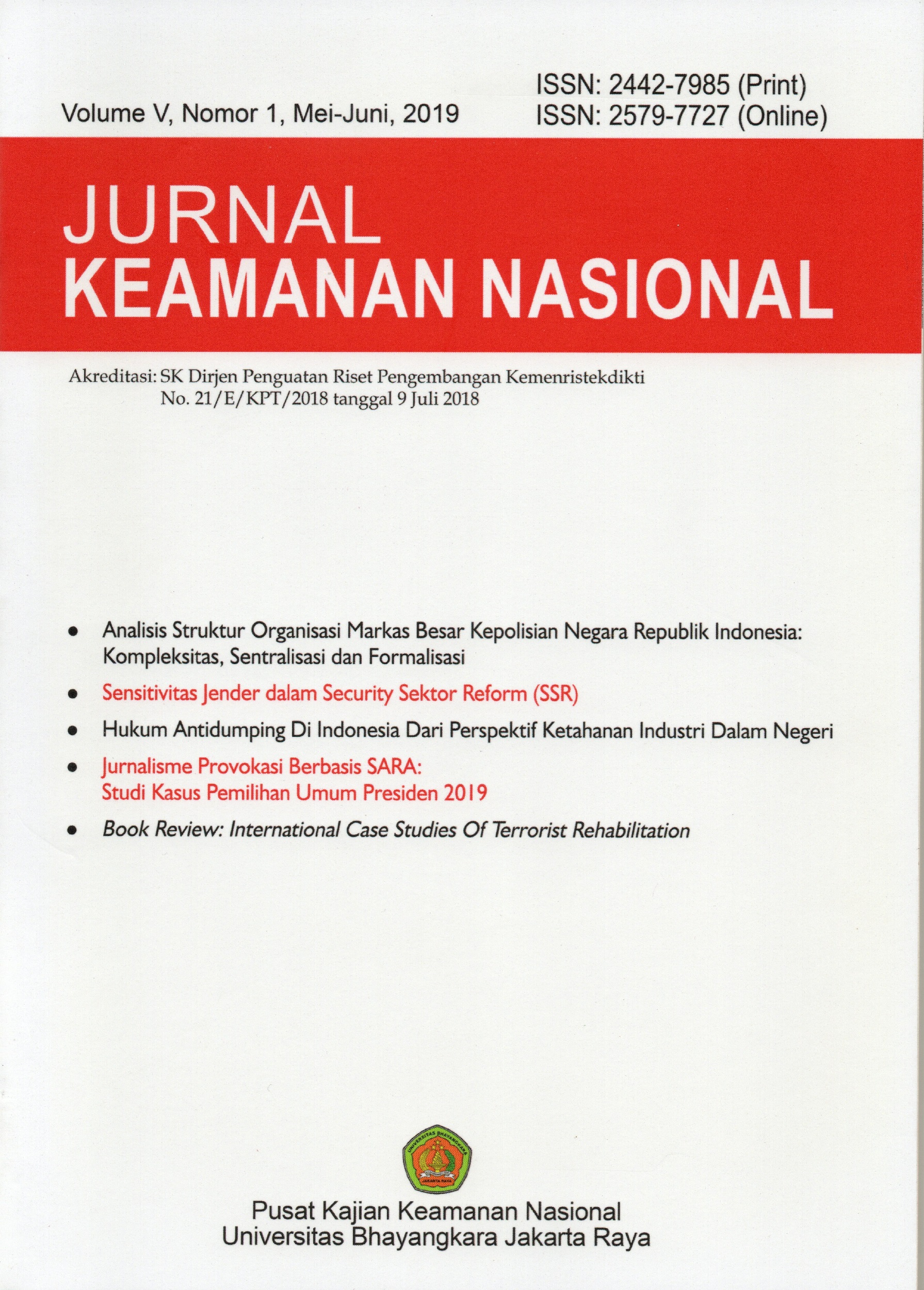Hukum Antidumping di Indonesia dari Perspektif Ketahanan Industri Dalam Negeri
Keywords:
Industrial Resilience, Antidumping, DumpingAbstract
The protection of the resilience of the domestic industry today is haunted by the practice of dumping by exporting countries of goods and services. Dumping is a competition practice between countries where the selling price of imported goods is below the normal price of good/services in the country. The practice of dumping is carried out by the exporting country by determining the price below or lower than the nominal value or the actual unit cost or can also be said to sell at a lower price in the importing country than in the producer country itself This is certainly detrimental to local businessmen and laborers in the country so that regulations from importing recipient countries
are needed for the resilience of the domestic industry in order to sustain the national economy. Some exporting countries often practice dumping to increase the economic benefits of the country itself but can harm the importing country. To avoid this dumping practice, Indonesia’s anti-dumping laws has an important role in the concept of domestic industry resilience.
Downloads

Downloads
Published
Issue
Section
License
Please read and understand the copyright terms for submissions to this journal.
Copyright Notice
The Jurnal Keamanan Nasional is under the Creative Commons Attribution 4.0 International (CC-BY 4.0) License, according to which:
1) Authors retain copyright and grant the journal the right to first publication, with the work simultaneously licensed under the Creative Commons Attribution (CC-BY 4.0) that allows the sharing of articles published with the acknowledgement of authorship and the initial publication in this journal.
2) The authors are authorized to make additional contracts separately for distribution of the version of the work published in this journal (for example, publication in an institutional repository or as a chapter of the book), as long as there is recognition of authorship and initial publication in this journal.
3) Authors are authorized and encouraged to publish and distribute their work online (for example, in institutional repositories or on their personal pages) at any time before or during the editorial process, as it increases the impact and reference of the published work.












